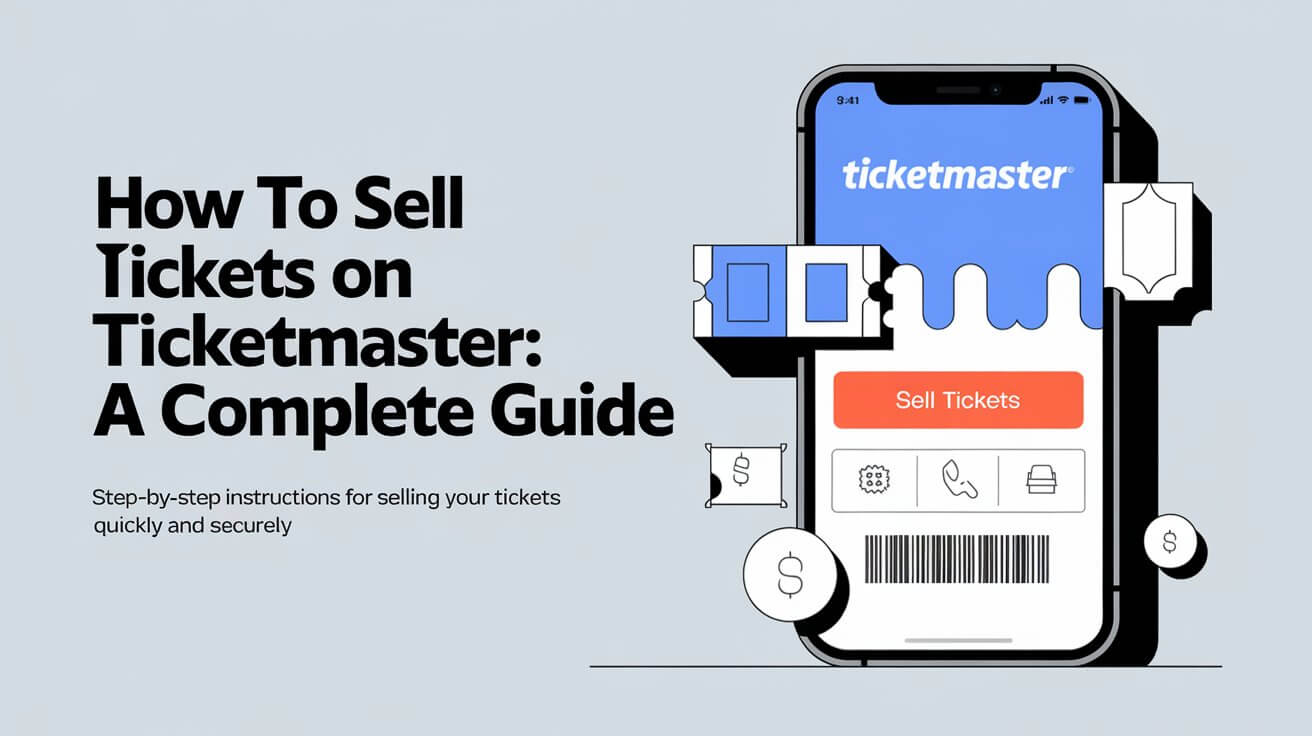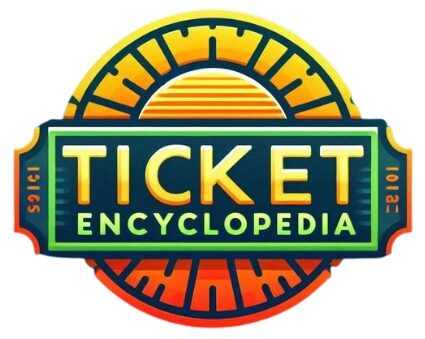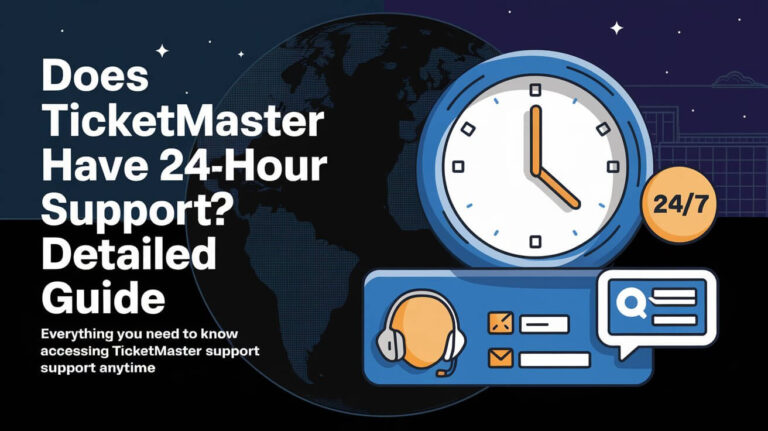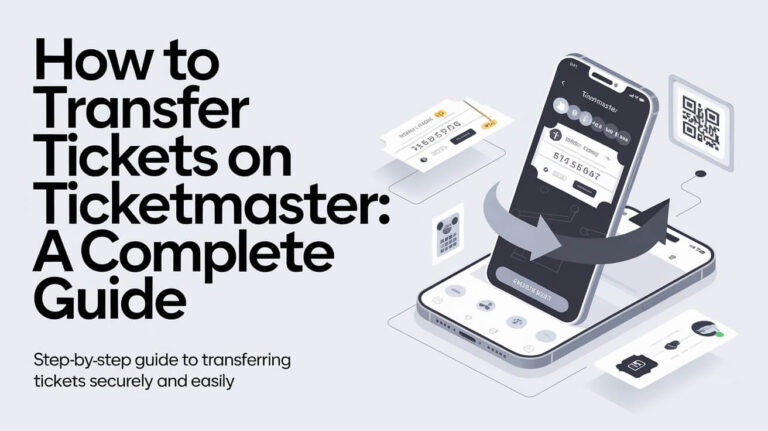How to Sell Tickets on Ticketmaster: A Complete Guide

Selling tickets on Ticketmaster is a straightforward and secure process, whether you need to offload extra concert tickets or resell tickets you can no longer use. This comprehensive guide will walk you through every step of the process, ensuring that you can sell your tickets quickly and easily.
Setting Up Your Ticketmaster Account
Create or Log Into Your Account
Before you can sell tickets, you need to have a Ticketmaster account. If you don’t have one yet, go to Ticketmaster and click on “Sign Up” to create an account. If you already have an account, simply log in.
Verify Your Account
To ensure the security of the platform, Ticketmaster may require you to verify your identity. This can include confirming your email address and providing additional information, such as a phone number.
Listing Your Tickets for Sale
Navigate to Your Orders
Once you’re logged in, go to the “My Events” section. This is where all your purchased tickets are stored.
Select the Event and Tickets
Find the event for which you want to sell tickets. Click on the event to see the tickets you have. Select the tickets you wish to sell and click the “Sell” button.
Set Your Price
You’ll need to set a price for your tickets. Be mindful of the current market rate to ensure your tickets are competitively priced. Pricing them too high might mean they don’t sell, while pricing them too low means you could miss out on potential earnings. Ticketmaster also provides a pricing suggestion based on similar listings.
Enter Payment Details
Next, choose your preferred method of receiving payment. This is typically done via direct deposit to your bank account or through a debit card.
Review and Post
Double-check all the details of your listing to ensure everything is correct. Once you’re satisfied, click “Post” to list your tickets for sale.
Managing Your Listings
Editing Your Listing
If you need to change any details of your listing, you can do so by going to the “My Listings” section of your account. Here, you can adjust the price, change the payment method, or update any other information.
Removing Your Listing
If your tickets sell through another platform or you no longer wish to sell them, you can remove your listing. Simply go to “My Listings,” find the tickets, and select “Remove.”
Ensuring a Successful Sale
Promote Your Listing
To increase the chances of selling your tickets, promote your listing. Share it on social media or send direct links to friends and potential buyers. The more visibility your tickets get, the better the chance they’ll sell quickly.
Monitor Pricing Trends
Keep an eye on the prices of similar tickets for the same event. If your tickets aren’t selling, you might need to adjust your price to stay competitive.
Understanding Ticketmaster’s Fees
Be aware that Ticketmaster charges fees for selling tickets. These fees can vary, so make sure to factor them into your pricing strategy to ensure you’re not losing money.
Getting Paid
Payout Timing
Typically, you will receive your payment within 5-7 business days after the event takes place. This delay ensures that the tickets are valid and the event proceeds without issues.
Tax Information
For U.S. sellers, ensure your tax details are up-to-date. Ticketmaster may require a Tax Identification Number (TIN) for payouts exceeding certain thresholds. Failing to provide this information can delay your payment.
Tips for a Smooth Selling Experience
Check Event Resale Policies
Not all events allow ticket resale. Some artists, teams, or venues may restrict resale. Ensure the event you’re selling tickets for permits resale on Ticketmaster.
Use the Mobile App
The Ticketmaster app provides a convenient way to manage your tickets and listings on the go. You can perform all the same functions as on the website, from listing tickets to monitoring sales.
Stay Informed About Fees
Be aware of any fees associated with selling tickets on Ticketmaster. This can include service fees and transaction fees, which should be considered when setting your ticket prices.
Frequently Asked Questions
What if my tickets don’t sell?
If your tickets don’t sell, you can either lower the price, promote your listing more aggressively, or consider other resale platforms. Sometimes, adjusting your price slightly can make a big difference.
How do I know if my tickets are eligible for resale?
Ticketmaster will notify you if your tickets cannot be resold due to restrictions set by the event organizer. This is typically indicated when you try to list your tickets for sale.
Can I sell tickets for international events?
Generally, you can only sell tickets for events in the country where you bought them. Check specific event policies for more information on international sales.
Additional Tips and Tricks
Understand the Market
Understanding the demand for the event you’re selling tickets for can help you price your tickets more effectively. High-demand events might allow for higher prices, while low-demand events might require competitive pricing to sell your tickets.
Optimize Your Listing
Write a clear and compelling description for your ticket listing. Highlight any key details such as the seat location, view, and any additional perks that come with the tickets.
Timing Your Sale
List your tickets as soon as possible to maximize visibility. Tickets listed closer to the event date may sell faster, but early listings often get more views and have a better chance of selling at a higher price.
Utilize Multiple Platforms
While Ticketmaster is a secure and reliable platform, you might also consider listing your tickets on other resale platforms to increase your chances of making a sale.
Stay Organized
Keep track of all your ticket sales, including the price, date of sale, and payment received. This will help you manage your finances and ensure that you receive all payments on time.
Tax Considerations for Selling Tickets
Federal and State Reporting Requirements
Ticketmaster is required to report the amounts you earn from selling or reselling tickets if your earnings meet or exceed federal or state thresholds. If you reach these thresholds, you will receive a Form 1099-K by January 31 of the following year.
Providing Tax Information
When you reach the reporting threshold, you must provide your Legal Name, Address, Phone Number, and Tax Identification Number (TIN). This information is necessary for Ticketmaster to process your payments and comply with IRS regulations.
Managing Your Tax Information
Keep your tax information up-to-date to avoid payment delays. Ensure that the legal name you use matches the name used for tax purposes to prevent any issues.
Conclusion
Selling tickets on Ticketmaster is a secure and efficient way to resell tickets you can no longer use. By following these steps, you can ensure a smooth and successful selling experience. Remember to set competitive prices, promote your listings, and stay informed about fees and tax requirements. Happy selling!




